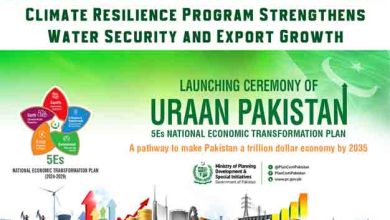Pakistan’s coastal areas more vulnerable to flooding, erosion: report
Country will expect more intense rainfall events and a potential shift in the seasonal availability of rainfall
Global warming has intensified to a worrying extent across the Hindu Kush Himalayan (HKH) regions’ glaciers, snow, and permafrost, including the range within Pakistan’s territories, making the changes “unprecedented and largely irreversible,” a report released Monday mentioned.
According to the report conducted by an eight-nation organisation, International Centre for Integrated Mountain Development (ICIMOD), Pakistan’s glaciers are losing mass at an alarming rate.
The ranges across the HKH region, as per this assessment, may lose up to 80% of their current volume.
“This is due to a combination of factors, including rising temperatures and changes in precipitation patterns,” the report read. It added that the loss of glaciers was 65% rapid in the 2010s in comparison to the 2000s in HKH.
The region is expected to lose 30% to 50% of glacial ice by 2100 at 1.5℃ of heat, while it will likely hit ‘peak water’ by mid-century, which will be followed by shortages.
The organisation added that these changes could lead to a decrease in water availability and an increase in flooding and landslides.
Meanwhile, Pakistan is also projected to experience an uncertain increase in precipitation in the near future.
The assessment most importantly mentioned that the country will expect more intense rainfall events and a potential shift in the seasonal availability of rainfall.
As far as the rise in sea level is concerned, the assessment mentioned that Pakistan’s coastline is projected to rise continuously over the next decades. This would also be due to an increased contribution of meltwater.
“This means that coastal areas, including its biggest city, Karachi, will be more vulnerable to flooding and erosion,” it added.
Philippus Wester — an environmental scientist, ICIMOD fellow and study’s lead author — said: “We’re losing the glaciers, and we’re losing them in 100 years’ time.”
The HKH ranges stretch 3,500 kilometres across Afghanistan, Pakistan, China, India, Bangladesh, Nepal, Myanmar, Bhutan.







